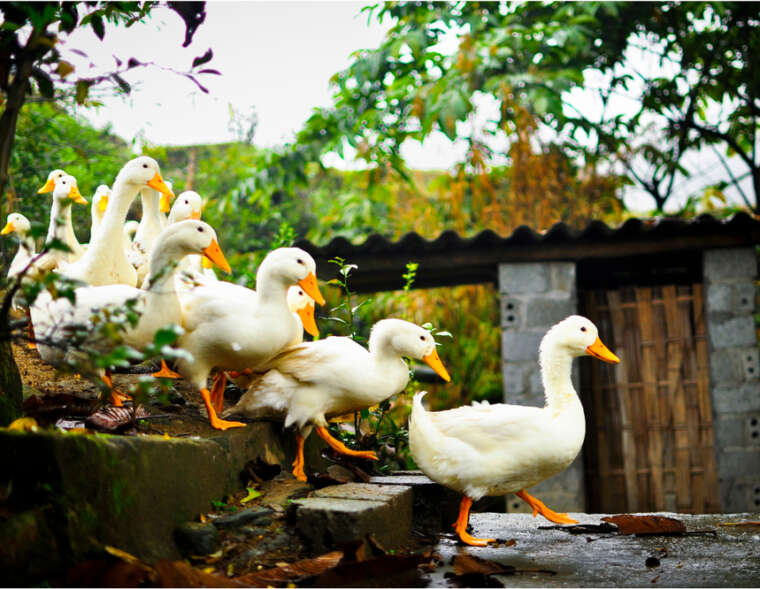Chiamare is a regular, first conjugation verb that means to call. It also means to invite, to catch someone’s attention, to make a phone call.
- La mamma chiama il bambino (The child is calling his mum)
- Mio marito mi stava chiamando da lontano (My husband was calling me from far away)
- Chiama i tuoi genitori e digli che siamo arrivati a casa (Phone your parents and let them know we are home)
Regular -are verbs are characterised by having the endings -o, -i, -a, -iamo, -ate, and -ano in present tense indicativo, and the endings -vo, -vi, -va, -vamo, -vate, -vano in the imperfect tense.
Like most other first conjugation (-are) verbs, the past participle of chiamare ends in -ato, making it chiamato. It uses the auxiliary verb avere when forming compound tenses. However, it can be used together with the verb essere to form the passive tense.
- Ho chiamato il dottore ma non ha risposto (I have called the doctor, but he did not answer)
- Chiamiamo la polizia! (Let’s call the police!)
You can the verb chiamare to introduce yourself or to explain how someone or something is called.
- Mi chiamo Lucia, piacere di conoscerti (My name is Lucia, nice to meet you)
- Il mio nome è Alessandro, ma gli amici mi chiamano Ale (My name is Alessandro, but my friends call me Ale)
- Quella montagna è chiamata Monte Bianco (That mountain is called Monte Bianco)
Below are the conjugations for the verb in tables, with example sentences and translations underneath.
Indicativo
| PRESENTE |
| io chiamo |
| tu chiami |
| lui/lei chiama |
| noi chiamiamo |
| voi chiamate |
| loro chiamano |
Io chiamo la polizia. – I call the police.
Mi chiamo Noah. – My name is Noah.
Chiami la mamma. – You call your mother.
Come mai non ci chiami più? – How come you don’t call us anymore?
Lui chiama suo padre. – He calls his father.
Lara ti chiama dall’altro lato del giardino. – Lara calls you from the other side of the garden.
Noi chiamiamo aiuto. – We called for help.
Chiamiamo il ristorante per vedere se ci sono ancora tavoli liberi. – We call the restaurant to see if there are still tables available.
Voi chiamate gli amici. – You called the friends.
Chiamate il medico perché il bambino ha la febbre. – You call the doctor because the child has a high temperature.
Loro chiamano gli altri. – They call the others.
Lo chiamano papà ma non è il loro vero padre. – They call him dad but he’s not their real father.
| IMPERFETTO |
| io chiamavo |
| tu chiamavi |
| lui/lei chiamava |
| noi chiamavamo |
| voi chiamavate |
| loro chiamavano |
Io ti chiamavo. – I called you.
Quel cane non veniva mai quando lo chiamavo. – That dog would never come when I called him.
Tu mi chiamavi. – You called me.
Chiamavi sempre in causa le questioni di principio. – You would always single out the matters of principle.
Lei chiamava la nonna. – She called her grandma.
Sua nonna si chiamava Annamaria. – Her grandmother was called Annamaria.
Noi chiamavamo i genitori. – We called the parents.
Quando avevamo bisogno di aiuto chiamavamo Andy che risolveva sempre tutto. – When we needed something we would call Andy, who always had a solution.
Voi chiamavate la zia. – You called your auntie.
La mamma accorreva ogni volta che la chiamavate. – Mum would run to you whenever you called her.
Loro chiamavano Daniel. – They called Daniel.
I miei interessi mi chiamavano a Milano. – My interests brought me to Milan.
| PASSATO REMOTO |
| io chiamai |
| tu chiamasti |
| lui/lei chiamò |
| noi chiamammo |
| voi chiamaste |
| loro chiamarono |
Io chiamai aiuto. – I called for help.
Chiamarono per vedere se Giulio fosse in casa. – They phoned to see if Giulio was at home.
| FUTURO SEMPLICE |
| io chiamerò |
| tu chiamerai |
| lui/lei chiamerà |
| noi chiameremo |
| voi chiamerete |
| loro chiameranno |
Io chiamerò Maria. – I will call Maria.
Faresti meglio a sbrigarti; non ti chiamerò due volte. – You’d better hurry up; I won’t call you twice.
Avete già deciso come si chiamerà il bambino? – Have you already decided what the baby’s name will be?
La chiameremo Aurora. – We will call her Aurora.
| PASSATO PROSSIMO |
| io ho chiamato |
| tu hai chiamato |
| lui/lei ha chiamato |
| noi abbiamo chiamato |
| voi avete chiamato |
| loro hanno chiamato |
Ho chiamato casa. – I have called home.
Ho chiamato un taxi per evitare di camminare. – I have called a taxi just to avoid walking.
Hai chiamato persone. – You have called person.
Hai già chiamato la fioraia e la parrucchiera? – Have you already called the florist and the hairdresser?
Ha chiamato gli amici. – She has called the friends.
Ha chiamato Patrizia mentre eri via. Dovresti richiamarla appena possibile. – Patrizia has called while you were away. You should call her back asap.
Abbiamo chiamato il cane. – We have called the dog.
Abbiamo chiamato il veterinario perché Stella stava molto male. – We have called the vet because Stella was very ill.
Avete chiamato la nonna. – You have called the grandmom.
Avete chiamato i vigili del fuoco dopo aver visto il cassonetto in fiamme. – You called the firemen after seeing the bin burning in flames.
Hanno chiamato Doris. – They have called Doris.
I vicini ci hanno chiamato molte volte ma non abbiamo sentito. – The neighbours have called us many times but we didn’t hear them.
| TRAPASSATO PROSSIMO |
| io avevo chiamato |
| tu avevi chiamato |
| lui/lei aveva chiamato |
| noi avevamo chiamato |
| voi avevate chiamato |
| loro avevano chiamato |
Ti avevo chiamato. – I had called you.
Ti avevamo chiamato per chiederti se volevi venire al cinema con noi. – We had called you to ask you if you wanted to go to the cinema with us.
| TRAPASSATO REMOTO |
| io ebbi chiamato |
| tu avesti chiamato |
| lui/lei ebbe chiamato |
| noi avemmo chiamato |
| voi aveste chiamato |
| loro ebbero chiamato |
Ebbi chiamato Luca. – I had called Luca.
Andai a casa solo dopo che ebbi chiamato tutte le persone sulla lista. – I went home only after having called all the people on the list.
| FUTURO ANTERIORE |
| io avrò chiamato |
| tu avrai chiamato |
| lui/lei avrà chiamato |
| noi avremo chiamato |
| voi avrete chiamato |
| loro avranno chiamato |
Ti avrò chiamato domani. – Tomorrow I will have called you.
Avrò chiamato un migliaio di persone, tutte quelle che compaiono sulla lista. – I will have called a thousand people, all those that are on the list.
Congiuntivo
| PRESENTE |
| che io chiami |
| che tu chiami |
| che lui/lei chiami |
| che noi chiamiamo |
| che voi chiamiate |
| che loro chiamino |
Vuoi che lo chiami? – Do you want me to call him?
Non vogliono che io chiami l’ambulanza ma secondo me è una questione ugente. – They don’t want me to call an ambulance but I think it’s an urgent matter.
| IMPERFETTO |
| che io chiamassi |
| che tu chiamassi |
| che lui/lei chiamasse |
| che noi chiamassimo |
| che voi chiamaste |
| che loro chiamassero |
Era felice che lo chiamassi. – He was happy I called him.
Non voleva che la chiamassimo col soprannome di Molly. – She didn’t want to be nicknamed Molly.
| PASSATO |
| che io abbia chiamato |
| che tu abbia chiamato |
| che lui/lei abbia chiamato |
| che noi abbiamo chiamato |
| che voi abbiate chiamato |
| che loro abbiano chiamato |
Non sapeva che ti abbia chiamato. – He didn’t know I called you.
| TRAPASSATO |
| che io avessi chiamato |
| che tu avessi chiamato |
| che lui/lei avesse chiamato |
| che noi avessimo chiamato |
| che voi aveste chiamato |
| che loro avessero chiamato |
Sperava che ti avessi chiamato. – He hoped I had called you.
Se non vi avessi chiamati vi sareste offesi a morte, vero? – If I hadn’t called you, you would feel very offended, wouldn’t you?
Condizionale
| PRESENTE |
| io chiamerei |
| tu chiameresti |
| lui/lei chiamerebbe |
| noi chiameremmo |
| voi chiamereste |
| loro chiamerebbero |
| PASSATO |
| io avrei chiamato |
| tu avresti chiamato |
| lui/lei avrebbe chiamato |
| noi avremmo chiamato |
| voi avreste chiamato |
| loro avrebbero chiamato |
Imperativo
| PRESENTE |
| – |
| chiama |
| chiami |
| chiamiamo |
| chiamate |
| chiamino |
“One of the most important areas we can develop as professionals is competence in accessing and sharing knowledge”









